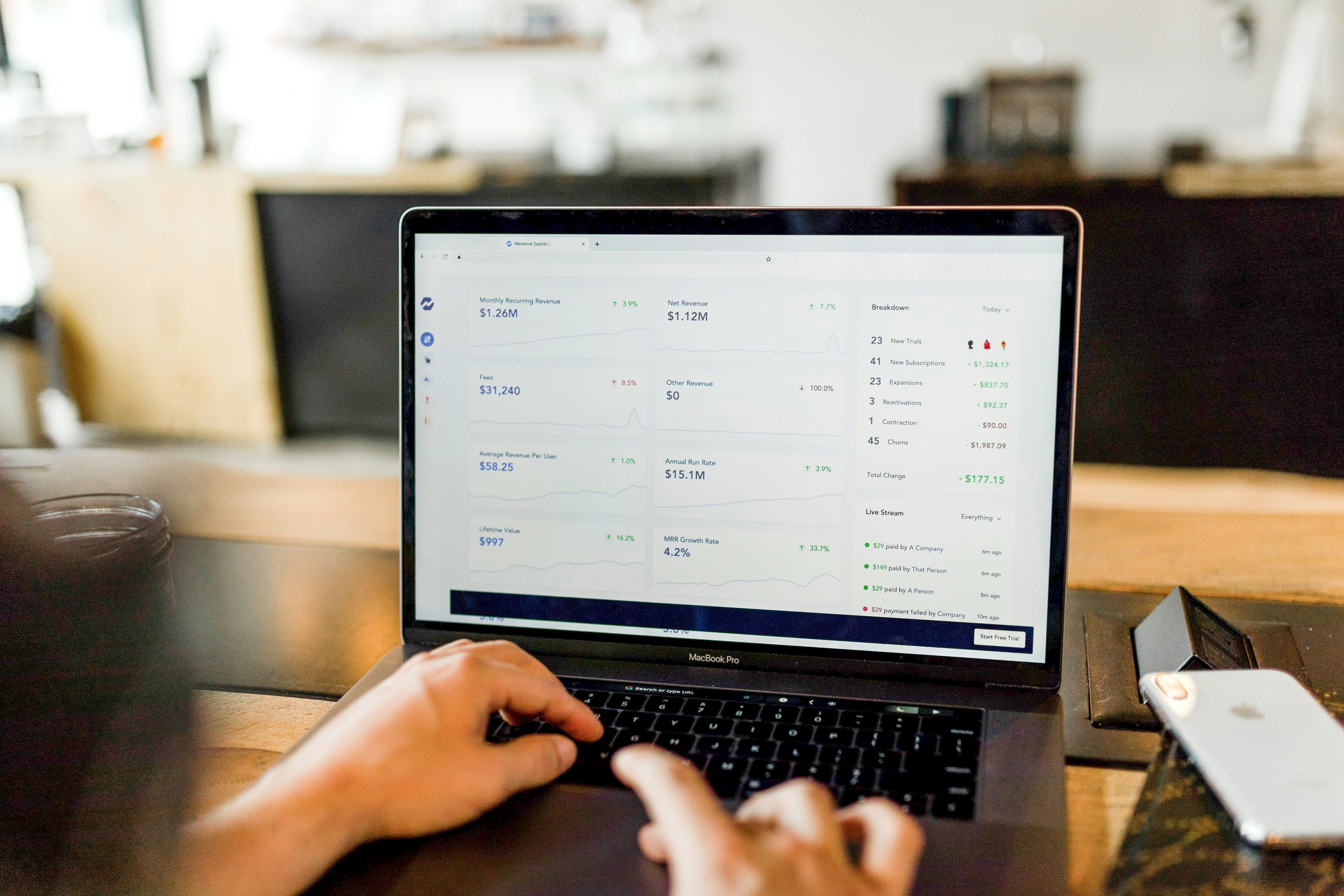Key Elements of High-Converting Hotel Websites
Some of the best practices to get turn more visitors into guests
Rodrigo Perez Garofalo
Aug 29, 2024
TABLE OF CONTENTS
Key Elements of High-Converting Hotel Websites
Creating a website that turns visitors into guests requires a mix of art and science.
You have to showcase your brand while also keeping in mind it converts.
So in this blog, we’re going to analyze what sets high-converting websites apart.
The power of words
Your website's copy is more than just information.
It’s your medium to connect with users.
Your way of showing you understand them.
And they belong in your hotel.
There are a few principles to take into account:
Focus on benefits, not just features
Address guest needs directly
Use clear, compelling language
For example, don't just list "24-hour room service." Instead, say "Satisfy your cravings any time, day or night."
Read more about how to talk to your audience in my previous piece about understanding your guests.
Compelling Offers
Strategic offers can help a user make a decision
However, don’t overuse it or you’ll lose credibility.
There’s a reason why Amazon only has one Prime Day.
A few options you have when creating offers:
Time-limited deals: Create urgency in times of lower occupancy.
Examples of this include Prime Day, Black Friday, etc.
Exclusive benefits for direct bookings: Give them a motive to book directly.
Examples of this include a free night if you book 7, a Complimentary room upgrade, a bonus massage, etc.
Experience packages: Sell more than just a room, include massages, tours, or whatever aligns with your brand.
Social Proof and Trust Signals
People trust other travelers.
Especially if they share their values and perspectives.
Use this to your advantage:
Display recent reviews prominently
Showcase awards and accolades
Use high-quality images of happy guests
These elements build confidence in potential bookers.
And they remove doubts and fear.
Reputation management is a key factor in hospitality.
Don’t neglect it.
Seamless Booking Process
A smooth booking journey is crucial.
Take cues from our analysis of top booking platforms:
Minimize steps and fields to booking
Offer guest accounts for faster checkout
Provide multiple payment options
Remember Jakob's Law - keep the process familiar and intuitive.
Reducing Friction and Hesitation
Every obstacle is a chance for a guest to change their mind:
Be transparent about pricing—no hidden fees
Offer free cancellation if possible
Provide instant confirmation
These practices align with UX best practices we discussed earlier.
By implementing these elements, you're not just designing a website.
You’re showing your greatness to the world, and your guests.
Continuous testing and refinement, as we saw in the Sandals case study, is key to ongoing success.
The Customer Journey and Conversion Funnel
Understanding how guests move from browsers to guests is key to optimizing your conversion rate.
The marketing funnel can give us insights on that journey.
The Awareness Stage
This is where potential guests first discover your hotel. They might:
See an ad on social media
Find you through a Google search
Hear about you from a friend
At this stage, focus on:
Eye-catching visuals that showcase your property
Clear, compelling headlines that speak to your target personas
Easy-to-find basic information (location, key amenities)
The Consideration Stage
Now, visitors are actively exploring your offering. They're comparing you to other options.
Key elements here:
Detailed room descriptions and high-quality photos
Highlighted unique selling points
Guest reviews and testimonials
Clear pricing information
This is where your compelling offers can shine.
The Action Stage
This is the crucial moment where interest turns into a booking.
Focus on:
A streamlined booking process
Clear calls-to-action (remember our discussion on Jakob's Law)
Reassurances about security and cancellation policies
Urgency creators (e.g., "Only 2 rooms left at this price!")
Strategies for Each Stage of the Funnel
Awareness:
Use targeted ads based on guest personas
Optimize for search engines
Engage on social media platforms your target guests use
Consideration:
Show video tours of your rooms
Provide comparison tools (e.g., room-type comparators)
Use retargeting ads to stay top-of-mind
Action:
Implement abandoned cart emails
Offer live chat for last-minute questions
Provide a best-price guarantee
Remember, guests can enter your funnel at any stage. Your website should cater to all, whether they're just browsing or ready to book immediately.
By understanding and optimizing for each stage of this journey, you can significantly boost your overall conversion rate.
Retaining and Upselling Guests: Maximizing Lifetime Value
Getting a booking is great, but turning that guest into a loyal, repeat customer is even better.
It's always cheaper to keep an existing guest than to acquire a new one. Loyal guests also tend to:
Spend more per stay
Be more forgiving if small issues arise
Provide valuable word-of-mouth marketing
Effective Upselling Strategies
Ask and you shall be given.
It was surprising to me how many people upgraded when offered the opportunity.
However, if you don’t prompt them to do it, they will rarely ask for it.
It’s like having a great product but not telling anybody about it.
You’re doing a disservice to the guest and you.
It isn’t just about increasing revenue, it’s about making their stay better.
There are a few moments when this is especially effective:
Pre-arrival emails: Offer room upgrades or special packages
During booking: Suggest complementary services (e.g., airport transfers)
At check-in: Propose dining reservations or spa treatments.
In-room: Promote amenities, food and beverages.
Before checkout: Offer to extend the stay or a late checkout if available.
Canary has built a great platform to offer upsells at different stages.
They allow you to introduce upselling opportunities in different stages of your guests' stay.
The key is to make relevant, timely offers based on guest personas.
Building a Loyalty Program That Works
A well-designed loyalty program can significantly boost retention:
Offer meaningful rewards (free nights, exclusive experiences)
Make earning and redeeming points easy
Provide instant benefits to encourage sign-ups
Use tiers to encourage more stays
There’s been a lot of talk about loyalty programs.
In the last few years, they haven’t been as effective as they were before.
There’s a great article about it in TNMT’s blog dissecting this exact topic.
One loyalty program that it’s very well crafted is dis-loyalty. It’s also an incredible example of the impact knowing your guests can have.
Nurturing the Guest Relationship
Keep the connection alive even after check-out:
Send personalized thank-you emails.
Request feedback (and act on it).
Share tailored offers based on past stays.
Keep them in the loop with social media.
Leveraging Technology for Retention and Upselling
Use tech to make personalization scalable:
CRM systems to track guest preferences and nurture relationships (even leaving personalized notes on their room).
Automated, targeted email campaigns
Mobile apps for easy booking and in-stay services (apps show a greater conversion rate, however, adoption is not easy).
FAQs
How often should I update my offers?
Regularly, based on seasons and occupancy. Keep content fresh to encourage repeat visits.
Is it worth investing in professional copywriting?
Absolutely. Great copy can significantly impact your conversion rates.
How can I gather more social proof?
Encourage happy guests to leave reviews. There are a lot of good tools to make this easier like Canary Technologies.
How can I tell which stage of the funnel needs the most work?
Analyze your website metrics. For example, if you have high traffic but low bookings, focus on the consideration and action stages.
How does mobile usage affect the funnel?
Mobile users often start in the awareness stage. Ensure your mobile experience is top-notch throughout the entire funnel.
How soon after a stay should I start re-engagement efforts?
Start immediately with a thank-you email, then follow up with personalized offers within 2-3 months.
Can small hotels compete with big chains' loyalty programs?
Absolutely and I would say that small hotels have an advantage to do something different. Focus on unique, personalized perks that big chains can't offer. Dis-loyalty is a great example of that.
How do I balance upselling with not being pushy?
Always frame offers as enhancements to the guest experience, not just add-ons for profit.
JOIN OUR NEWSLETTER
Get strategies and insights on how to grow your hotel with technology
RELATED ARTICLES
Learn more from this same topics in our blog
How experiments can help you double your direct bookings
Testing small changes is the clearest path to more direct business
Rodrigo Perez Garofalo
Aug 30, 2024
Improving the booking journey with UX design
How you can use UX principles to grow your hotel bookings
Rodrigo Perez Garofalo
Aug 22, 2024
How knowing your guest can bring you more direct bookings
And why it's the key to delivering a great guest experience
Rodrigo Perez Garofalo
Aug 15, 2024
TALK WITH AN EXPERT ON HOSPITALITY TECH
Get all your doubts answered and a roadmap to achieve your goals





